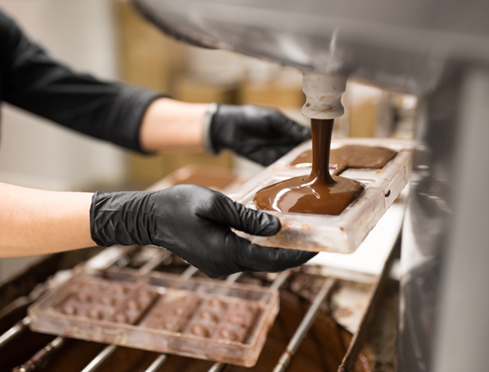In today's conscientious consumer landscape, the demand for ethically sourced and lasting items has surged. Private label food manufacturers have emerged as trendsetters in this domain name, frequently working together with contract food manufacturers to spearhead sustainability and also liable sourcing efforts. With a tenacious dedication to environmental principles, personal label brand names have actually made it their goal to provide sustainable, premium alternatives to customers.
Private Label Food Manufacturers
Recently, private label food manufacturers, likewise called very own brand names or shop brand names, have seen a remarkable surge in appeal. These makers create items sold under the logo of a retail store, grocer, or personal entity. What sets private-label products apart is their capability to provide affordable pricing without endangering on quality.
Contract Food Manufacturers

Many private-label food suppliers join forces with agreement producers to establish their line of product. Contract food manufacturers are professionals in creating food for private tags. This tactical collaboration permits personal label companies to take advantage of the proficiency, resources, and specialized food manufacturing facilities of their collaborators.
Sustainability at the Core
Private label food manufacturers use numerous strategies to enhance sustainability within their supply networks:
Honest Sourcing:
Exclusive label firms are increasingly devoted to sourcing ingredients according to moral as well as fair trade standards. This requires ensuring that producers as well as workers of raw materials, such as coffee beans, seasonings, or cacao, receive reasonable compensation for their initiatives.
Regional Sourcing:
Prioritizing regional sourcing of active ingredients is one more hallmark of private-label food manufacturers. This not only lowers the carbon impact connected with transport but likewise supports local farmers as well as communities.
.jpg?width=1311&height=875&name=Untitled%20design%20(32).jpg)
With the organic food market increasing, private labels are responding by integrating natural ingredients into their product. Organic farming methods focus on dirt health while eschewing artificial chemicals and fertilizers.
Sustainable Fish and shellfish:
Private Label Food Manufacturers are persistent in making sure that the fish and shellfish they utilize is sustainably harvested, adhering to guidelines set by companies like the Marine Stewardship Council, which promotes accountable angling.
Reduced Food Waste:
Exclusive label business are actively working on reducing food waste by executing reliable manufacturing procedures as well as establishing products with longer service life. Some brands are additionally partnering with food rescue companies to donate surplus food to those in need.
Eco-Friendly Packaging and also Efforts
Sustainability efforts by private-label food manufacturers extend past sourcing components to encompass packaging as well as green initiatives:
Lasting Product packaging:
Private label brands have actually accepted environment-friendly product packaging alternatives, including recyclable, biodegradable, or compostable materials. Upgrading packaging to decrease excess material and decrease ecological impact is a leading priority.
Waste Reduction:
To lessen waste, private-label food producers optimize product sizes, lower excess product packaging, and explore ingenious product packaging services. Some brand names also encourage consumers to join reusing programs.
Energy Efficiency:
Several exclusive label suppliers are investing in more energy-efficient manufacturing plants, decreasing water usage, and also embracing renewable resource resources to even more decrease their ecological impact.
Carbon Neutral Initiatives:
Some personal brand name food manufacturers are taking ambitious steps to achieve carbon nonpartisanship by countering their greenhouse gas exhausts via reforestation tasks and renewable resource debts.
Obstacles and also the Roadway Ahead
Regardless of the significant strides made in sustainability and also liable sourcing, private-label food makers encounter difficulties. Stabilizing sustainability with cost-effectiveness can be a delicate act, in some cases needing concessions on sustainable components or the exploration of environment-friendly alternatives.
Nevertheless, the future of private-label food manufacturing holds excellent assurance. As customer recognition as well as need for sustainable items remain to increase, private-label brand names and also their contract food manufacturing companions are likely to escalate their initiatives. Cooperation with distributors as well as financial investment in lasting technical advances and transparency will be essential fit a sustainable future for the industry.
Frequently Asked Inquiries
Q1: What are private label food manufacturers?
Private label food manufacturers create items sold under the logo design of a store, grocer, or personal entity. They use competitively valued products without endangering on quality.
Q2: How do private label food manufacturers promote sustainability?
Private label food manufacturers advertise sustainability through ethical sourcing, neighborhood component purchase, making use of natural active ingredients, sustainable seafood practices, and initiatives to decrease food waste.
Q3: What environmentally friendly product packaging alternatives do exclusive label brands utilize?
Private label brands take on eco-friendly packaging options such as recyclable, naturally degradable, or compostable products. They likewise revamp packaging to reduce excess product as well as reduce environmental influence.
Q4: What tests do private label food manufacturers face in sustainability efforts?
Balancing sustainability with cost-effectiveness is a major obstacle for private label food manufacturers. This might require compromises on sustainable components or the exploration of green options.
Verdict
Private label food manufacturers are at the center of the sustainability as private label food manufacturers australia well as liable sourcing motion within the food market. Their dedication to ethical sourcing, regional purchase, natural ingredients, and also sustainable techniques, in addition to their devotion to environment-friendly packaging as well as waste decrease campaigns, show their decision to satisfy the needs these days's eco-conscious consumers.
In spite of the challenges they face, private label food manufacturers are poised for an encouraging future. With consumers significantly prioritizing sustainability, the industry is likely to witness even better cooperation with suppliers, financial investment in sustainable innovations, and a commitment to openness. As we progress, private label food manufacturers will certainly continue to play an essential role in shaping an extra sustainable and honest food landscape for all.